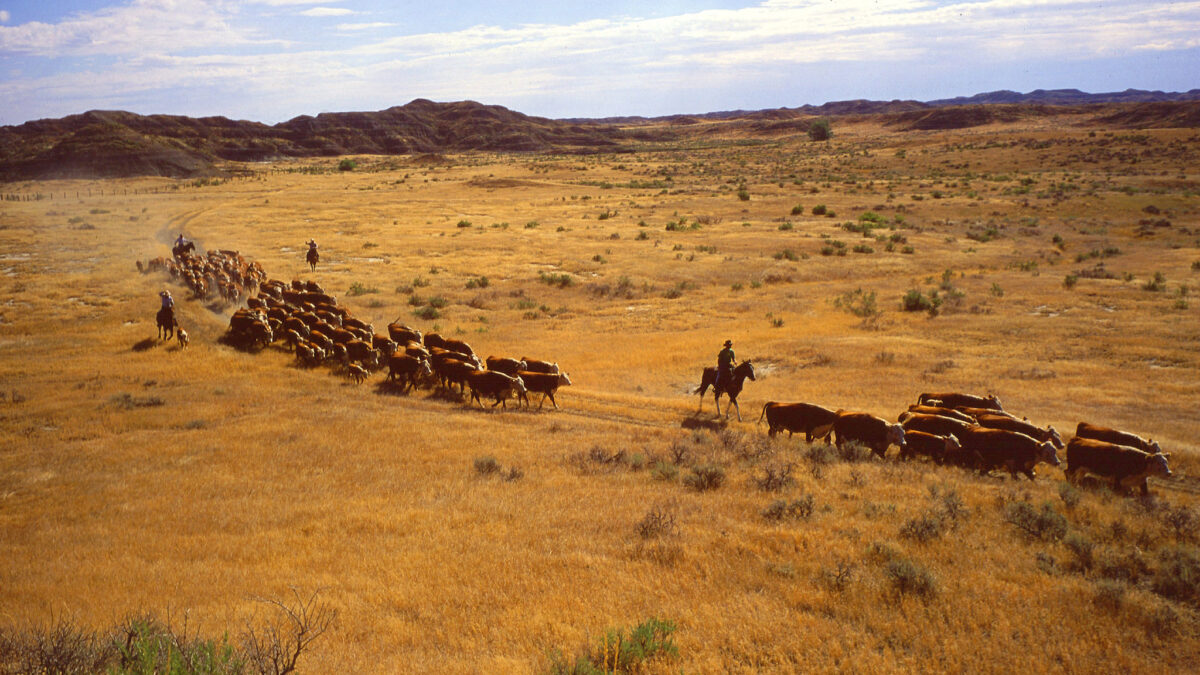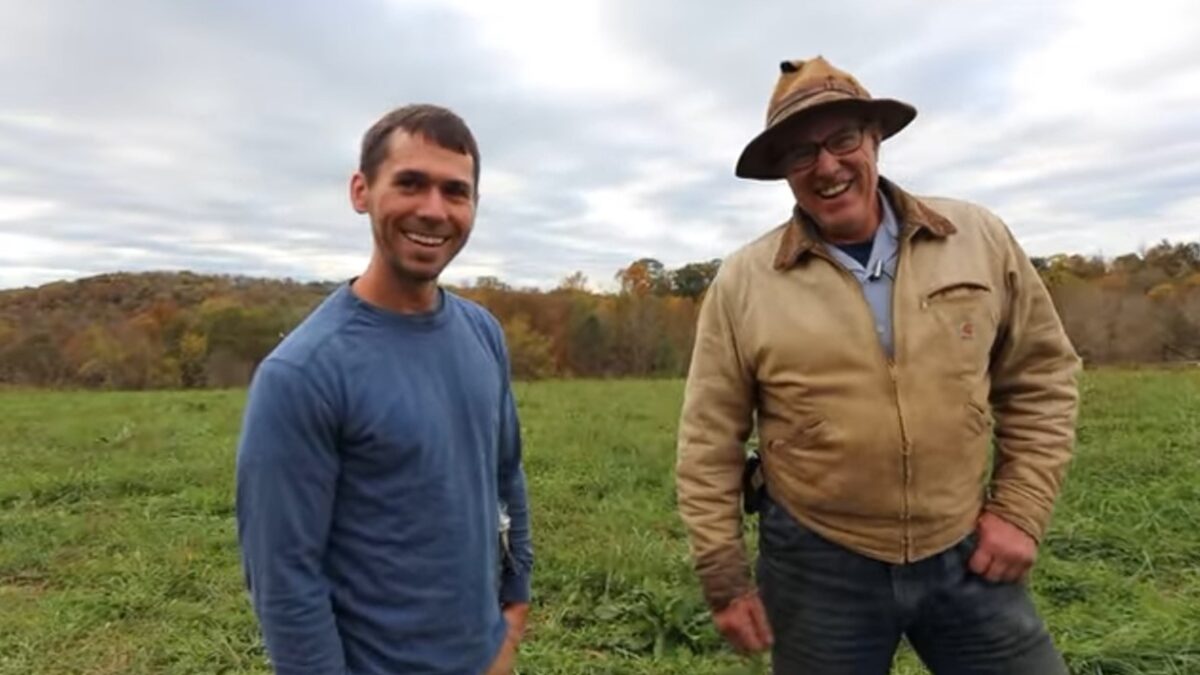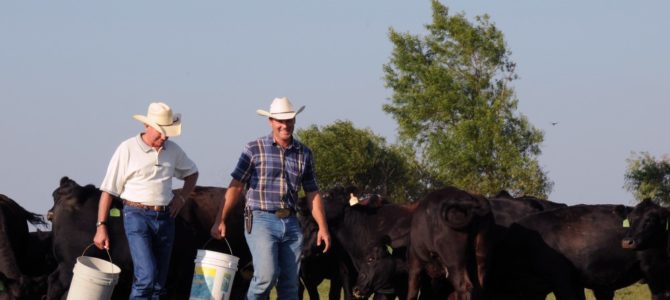
We’ve got big problems with education here in America: problems with student loan debt, retention rates, “summer melt,” and unemployment post-college. In light of these challenges, Hugh Warwick suggests a simple—if somewhat alarming—solution over at The Guardian: conscript high school graduates into the agricultural workforce the year before they head to school.
After a 14-year slog young people are in need of a break to ask searching questions. What do they want to do with their lives? Do they want to saddle up a mountain of debt to take out into the ‘real world’?
What if there was to be a pause. A year in which you have the chance to earn your tuition fees while at the same time learning more about yourself. A time to explore a life outdoors. A time to grow food, develop community and repair a damaged environment. A truly productive gap year.
The number of social, health and ecological benefits that can be gained from a year of working in common purpose is astounding. Breaking down social barriers by having people working together from all over the country will remind us how much we have in common. Working outside in nature is known to benefit us in body and mind – not just because I might be a bit of a hippy, but because peer-reviewed science shows that it does. We know that convalescence is faster, recidivism is reduced, learning is deeper and our minds are eased in nature.
Learning where food comes from, growing it and eating it, will help tackle unhealthy patterns of consumption. Rural communities will benefit from an influx of people. Villages might become more than dormitories once more. Hedges would be laid, drystone walls built, fruit harvested, weeds pulled, ditches cleared. The emphasis would shift from contractors’ tractors to people power. The threatened absence of seasonal workers from Europe, as we retreat after Brexit, will be catered for as well.
I think Warwick is right about the myriad of benefits a farm job would provide to young adults, but we can’t force an entire generation of young people in agricultural labor. (At least not in this country.) Lots of folks these days are enthusiastic about the more appealing facets of socialism—free health care, free college. But getting conscripted into agricultural labor is the dark side of socialism: it’s not just unfair to individuals, it’s damaging to our political and economic system as a whole.
That said, we should have more young people on the farm. We need more young people on the farm. So apart from government-enforced agricultural labor camps (such an appealing idea), how can we convince the college-bound that they might benefit from some time on the farm?
1. Convince Young People That The Work Is Worth It
A lot of youths these days are turning down or not looking for summer jobs. When it comes to farming jobs, their disinterest largely stems from the hard, manual nature of the work. I’m not just saying this without substantiation: I’ve talked to many farmers who have said they’ve tried—and failed—to procure high school and college employees during the summer. Most who commit don’t show up. Those who do quit either on the first day, or within the first week.
Other high schoolers don’t want to work on the farm because they don’t think these sorts of jobs will be appealing on their college resumes. Many are determined to get prestigious internships, to attend important summer camps, or to acquire fancy scholarships or fellowships. And who can blame them? They need to put together a portfolio impressive enough not just to get into school, but to get as much financial aid as they’re able. Free-ride scholarships don’t go to the Missouri farm boy who’s spent his summers digging ditches.
This doesn’t include the talented high school athletes who spend their summers practicing, training, and participating in sports events. For many, athletic scholarships are also a promising means to attend college. Who has time for a summer job when you’re on a strict training schedule?
But colleges and universities are increasingly receptive to a sort of learning that extends beyond the classroom, and into the fields. Schools such as Hampshire College, Clemson University, Evergreen State College, Western Washington University, Yale University, Berea College, Berry College, and Spring Arbor University have small farms or community gardens on-campus. What if these schools encouraged their upcoming or current students to get jobs and internships on the farm?
As much as these jobs are beneficial to students, they’re also beneficial, I’d argue, to universities.
2. Schools Should Offer Internship Credits To Ag Workers
Students who work the land receive a myriad of benefits, beyond the emotional and personal mentioned by Warwick in his article—and I’d argue that the lessons to be learned via farming would lend themselves to a wealth of majors. More colleges and universities should encourage their students to get internships or jobs on the land, and give them credit for it.
Economics majors could learn about the world of farming—the effect of subsidies and crop insurance on the market, the cost of land and labor, the intricacies of agricultural trade, the peril or promise of rural commerce. Business and business management majors could learn firsthand the benefits and challenges of running a business, and get practice bookkeeping and making vital business decisions. Literature and English majors could focus their non-work time on farming literature—from John Steinbeck to Wendell Berry, Willa Cather to Wallace Stegner. Political science majors could study the works of Thomas Jefferson, the Southern agrarians, Alexis de Tocqueville, and Victor Davis Hanson. Biology and horticulture majors could immerse themselves in the life and health of the various species that populate their farm.
Farming lies at the crux of several disciplines. It offers a fascinating and exciting way to immerse students in the nitty-gritty, hands-on aspects of their major, while enabling them to also make some money (always a good idea). For some students, an opportunity to work the land may inspire them to return to the farm post-graduation. And if there’s one thing we need more of, it’s young people interested in keeping alive America’s agricultural enterprises.
3. Make Agricultural Stewardship a Part Of College
But farming experience shouldn’t be solely available to students before and after college, or even just over the summer. More colleges and universities should have community gardens or small farms. It’s an enterprise that can start small, and grow over time. It gives students an opportunity to learn vital lessons about food, horticulture, stewardship, and consistency (all the while decreasing stress and giving them an endorphin boost).
Too many young people have forsaken the farm. The average farmer is nearly 60 years old. That presents a hazardous future for American agriculture: unless and until we begin transitioning farms to younger hands, helping young people procure land and begin the next generation’s farming enterprises, we’re going to have a seismic problem on our hands. The percentage of the U.S. workforce currently employed in agriculture has dropped to less than 2 percent. Are we ready to consider the impact such a drop could have on our food supplies and economic stability if it continues unchecked?
This is why we need to inspire and encourage young people to spend time on the farm. Conscription is never going to build up young adults’ love of the land, the animals and plants it fosters. But empowering students to choose the farm life—that sounds like an option worth exploring.









